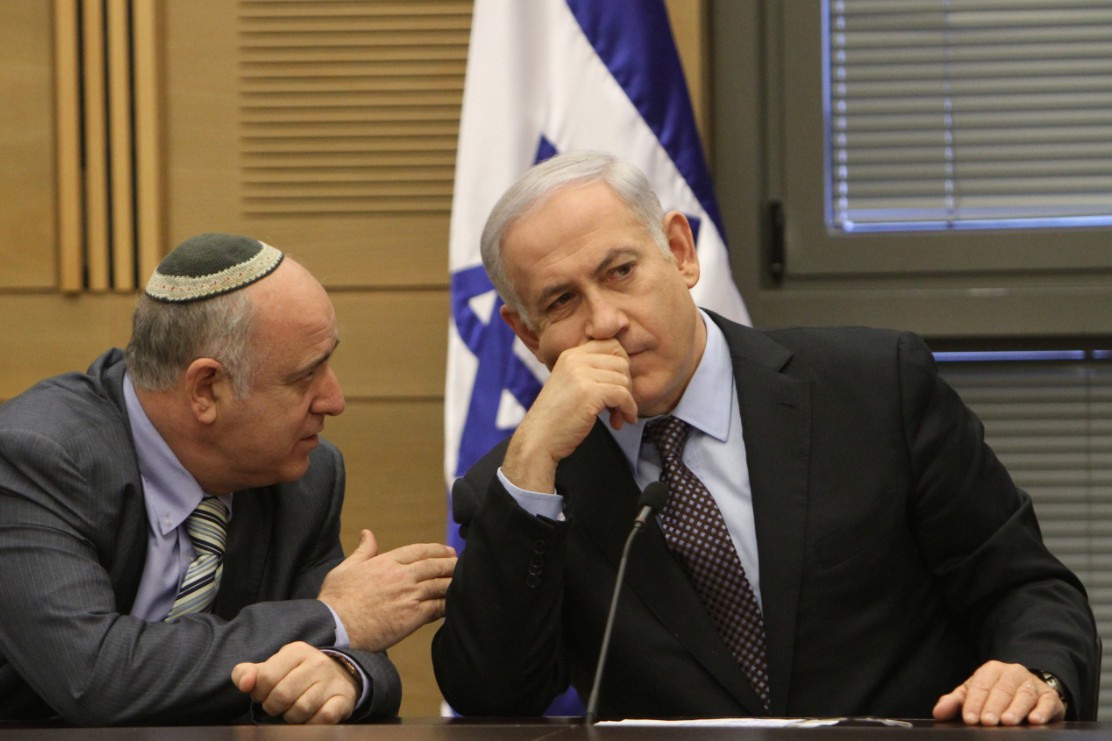Is Tiberias Municipality on the Way to a Managing Committee? Former Knesset Member Zion Pinyan Interviewed
"There was never such a thing as a religious-secular divide in Tiberias," says former MK Zion Pinyan with pain. "We just intensified the issue."
 (Photo: Miriam Alster/Flash90)
(Photo: Miriam Alster/Flash90)Former MK Zion Pinyan, serving as Likud faction leader in Tiberias, is pained by his city’s state and concerned about its future. Pinyan (68) has served as a Knesset member for Likud and as deputy mayor under Yossi Peretz and Benny Karyati. Pinyan ran for the head of the municipality as the Likud candidate in the last elections, a race in which former mayor Yossi Ben-David and current mayor Ron Kobi also participated. Until recently, he served as the head of the northern bureau in the Ministry of Transport. He is considered one of the most experienced and veteran local politicians and has a cumulative 25 years of service as a city council member and Knesset member. During his tenure as MK, Pinyan was the parliamentary coordinator in the Finance Committee.
Currently, Zion is preparing for national elections. "Like any human being, I felt betrayed," he says about the local municipality election results that left him out of the city council. "There was a protest vote in Tiberias, and the vote left its mark. For years, Tiberias' residents were disappointed, and now they expressed their disappointment at the ballot, the only place they could express their feelings. I was one of those affected."
Zion is a longtime resident and, as mentioned, an experienced politician. He clearly remembers when Galilee Street in Tiberias, the commercial artery in the lower city, was one of the most sought-after in Israel. He views the city's gradual decline as a process. "Suddenly, we encountered the issue of the Haredim, which was never an issue in Tiberias. The Haredim always lived alongside the secular. Although it was sharply expressed in the previous term, the strong intensity came during Ron Kobi’s term, meaning in the current term. In my estimation, the vote for Ron Kobi was a protest vote. There was never a mayor who received 6 seats in the city council out of 15, Mayor Yossi Peretz received 5 mandates out of 17 seats."
"There was never such a thing as a religious-secular divide. Tiberias is one of the four holy cities; this is how the world and the State of Israel regard it. There is no extremism here; we just intensified the situation. There is no family in Tiberias without deep roots in Judaism. You can also see this according to ethnic division: the Moroccans, Irakis, or Yemenites—all are traditional in Tiberias. Even the rooted Tiberians who came from the Atlas Mountains also embraced tradition. We just intensified the issue."
What’s your opinion on the attempt to introduce public transport on Shabbat?
"I wouldn’t do such a thing; it's an example of extremism. Personally, I am a religious person who observes Shabbat at home, and operating a bus just as a provocation—it doesn't suit, it's not suitable at all."
Do you think we can talk about the end of stateliness?
I hope not, but we are not far from it. The mayor is the one who determines the policy. He must know what will be good and what will be bad and decide accordingly. Let’s not forget that 10,000 people elected Ron Kobi—it’s not simple. He can shape how we will live in the coming years in Tiberias."
As a resident of the city, do you feel any change or improvement in recent months?
"I am unable to provide an answer. The right of proof is on the mayor. I spoke to Ron since he took office, but I don’t interfere with how he manages the city. If he’s good, he’ll be elected again; if he’s not good—he won’t be elected. That’s how it works."
The first city council meeting in Tiberias was a remarkable scene: the audience was excited, and the Haredi city council member, David Ohana, had to leave the hall accompanied by guards. "I admit—I was ashamed and humiliated. Moreover, I was embarrassed to be a resident of Tiberias. It doesn’t fit. Since the liberation of Tiberias in 1948, there had never been such a meeting. Not during the mayors’ tenures like Moshe Tzachor z"l, Igal Bibi, Benny Karyati, Zohar Oved, or Yossi Ben-David. I was in shock. It was the spectators who ran the meeting, not the council members. Regarding what happened to David Ohana, I can say—when you incite against religion, don’t expect otherwise."
As mentioned, in the previous term, Zion was the opposition leader in the city council. Toward the end of the term, the opposition increased its power in the council. Today, Zion prefers to distance himself from council meetings. "Today I am more involved in national politics and can say I'm succeeding, I would like to succeed in Tiberias too and put it on the right track, but the residents have spoken, so I don’t disturb the residents, but I succeed for the people of Israel on the national level."
About four years ago, Prime Minister Benjamin Netanyahu visited Zion's home: "There was a political convention related to internal Likud elections. The Prime Minister asked me to host him at home, and within a day, we organized it, and he came. 300 center members from the north attended, he spoke with everyone, and thanks to the convention, he won in the north."
 (Photo: Miriam Alster/Flash90)
(Photo: Miriam Alster/Flash90)Covering the Deficit isn’t the Solution: We Need an Economic Boost
Zion admits that today, perhaps more than ever, he is worried and troubled about his city’s condition. "It’s not just that I’m hurting—I’m fearful for Tiberias’ fate because if we don’t initiate some moves with or without the mayor, I don’t know where we’ll end up. But one thing I know—we must make moves and certainly not hate the Haredim. I also have Haredim in my family. My nephews are all Haredim, and it’s like that in every Tiberian family; everyone has Haredim. Things should be done respectfully without baseless hatred.
"During my time as opposition leader, the deficit reached nearly 200 million shekels, and I don’t see how it will be covered anytime soon, especially given the antagonism against Interior Minister Aryeh Deri’s party. Tactically it is not right at all; it’s not a war at all. In politics, they say: if there is someone you can’t beat—be his friend."
During Mayor Zohar Oved's tenure, in 2012, government ministers and the Prime Minister himself came to a special meeting in Tiberias, where huge budgets were distributed for various projects. "Tiberias needs a lever. Giving aspirin to a cancer patient isn’t useful, and it doesn’t work. Deep plowing is needed, which means declaring Tiberias a city with top-priority focused treatment and bringing the Prime Minister here with all the ministers and conducting a government meeting on Tiberias, making decisions, and going on the way. Even if they cover the deficit, the day won’t be far when we return to the same deficit. Deep plowing is needed. Past mayors covered previously created deficits, so why return to a deficit?! Cash generators must be found for Tiberias; entrepreneurs, attractions, anchor factories—the moment they come in, they’ll pay taxes, employ workers, and even the residents exempt from taxes will start paying since they’ll be employed. Growth engines are the most important thing."
Tiberias Municipality has yet to approve a budget for 2019. The Interior Ministry confirms and says: "According to law, the approval date for the 2019 budget is 31.3.19. From verification, it appears that Tiberias Municipality has not yet submitted a budget approval request."
One possible scenario is the appointment of a managing committee—a committee for fulfilling the role of the mayor and council appointed by the Interior Minister to fulfill the roles of the mayor and city council, or solely the council, under various conditions listed in the municipal ordinance, which testify to the municipality’s poor performance. A managing committee was appointed, for example, in Ofakim from 2007 to 2013. Section 143 of the municipal ordinance lists several grounds whereby the interior minister may order elections for the mayor, council, or both and appoint a managing committee in place of the mayor and council or just the council: the number of council members fell below the minimum; the council or the mayor improperly fulfills their duties, including duties imposed on the council as a local planning and construction committee under the Planning and Building Law. Another situation is where an investigation committee appointed by the minister found that the mayor or the council may not properly fulfill their duties.
Zion served as the chairman of the investigative and inquiry committee in the Usfiya council. "From what I hear—people don’t understand what a managing committee is. Principally, if by June a budget isn’t passed, a possible scenario is that the mayor will be summoned for a hearing at the Interior Ministry wherein he’ll be queried about why the budget didn’t pass. The council is also checked, and then it’s decided who is sent home; in Tiberias’ case, in my estimation, both will be sent home, and a managing committee chairman will be appointed. The city is already being managed with an accompanying accountant (an accountant from the Interior Ministry who accompanies its daily activities)."
"In the current state, a managing committee is probably the right thing. A managing committee will calm the local politics, and it must be calmed. In such a scenario, everyone will go home until the next elections. The elections in Tiberias ended 4-5 months ago, but the remnants of the election campaign have not disappeared; they still exist. The local politics must be calmed. I don’t remember such a situation. Tiberias municipality has previously been on the brink of a managing committee several times, but never acted like this. I call on the council members from the opposition and coalition to maintain a cultural and fair discourse in council meetings. Today in the age of networks, everyone sees everyone, and they don’t look good."
No response has been received from Tiberias Municipality.

